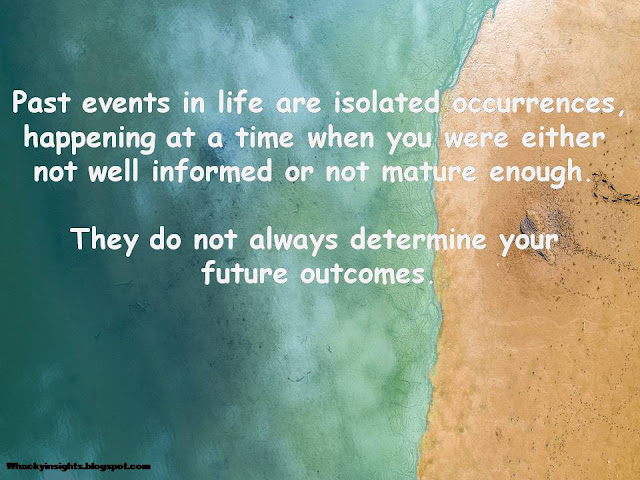Feeling stuck in life is usual, what may be unusual is, the origin of that belief – Learned Helplessness.
An
Elephant chained to a pole in a circus is a common occurrence, but what most of
us might not have observed is that the chain and most of the times the pole
itself might not be strong enough to contain the mighty Elephant. Yet the
Elephant does not move outside the set radius and never tries to break the
chain, even though it is capable to do so.
Why
does this happen? The answer lies in the times when the Elephant was trained as
a baby. The trainer secures the baby Elephant with a chain or similar
arrangement which is too strong for the baby Elephant to break. The Elephant
tries for several days to break loose and however unsuccessful, over a period
of time presumes that the chain is unbreakable. And this belief develops to
such an extent that the Elephant believes it as the ultimate truth, throughout
its life.
What is Learned Helplessness?
The
above behavior is a classic example of “learned
helplessness”. The term was coined by American Psychologists Martin Seligman
and Steven Maier in their study of clinical depression.
It
is, in fact, a mental condition where the subject believes that they do not
have a choice, no power to choose the outcome. The subject’s failure to
overcome the situation or challenges in the past creates an illusion of
helplessness, and the subject comes to believe they are helpless. They feel
stuck and posses no motivation to overcome the situation, even though the amount
of effort required doing so is trivial.
What causes the behavior?
A
simplified explanation of the study conducted by the American Psychologists can
be understood as follows. They subjected groups of dogs to electrical shocks,
in certain groups the dogs were secured so that they would not escape the
shock, no matter what they did; and in other groups,
the dogs could escape the shock with some minor effort to do so.
After
continuing the trial for a period it was seen that dogs which were not able to
escape the shock previously, continued to believe the same and never tried to
overcome the situation even when there was clear possibility to do so.
This
analogy explains the cause of similar
behavior in humans. Our repeated failure to control certain outcomes or to
avoid certain discomfort in our lives over a period becomes ingrained. Perhaps
the failure would have been at a certain time when we were young, uninformed,
immature, and may be the situation itself
had many temporary constraints, but based on our past inability we begin to
generalize and apply this to all similar situations, continue to see ourselves
as helpless.
How it affects our abilities?
It
can emotionally paralyze someone to such an extent that the person believes to
be stuck and blames everything or
everyone else for their failures but not themselves.
When
someone sees that there is nothing they could do to change the situation, their
effort at making things work decreases, this further reduces their learning
ability. This contributes to:
·
Complete inability or unwillingness to
act.
·
Increased Stress.
·
Chronic Failure.
·
Low Self Esteem.
·
Anxiety, Phobias & depression.
·
Psychosomatic illnesses.
Common occurrences in social
situations
It
can affect and impact our society and social situations at large in many ways:
·
Learning
Disability – often children when they fail repeatedly
to cope up with certain subjects for example mathematics, presume they are
never capable to improve their performance and further show unwillingness to
put any effort and when they grow up, this behavior gets reflected into other
social situations.
·
Domestic
Violence – the abuser be it in any emotional
relationship or marital relations makes the victim feel so helpless with their
repeated assault that the victim begins to accept it as fully normal, owing to
their inability to change it and continues to suffer, even when there is clear
way to evade or report such abuse.
·
Victim
Mentality – very often children or young adults due
to repeated exposure to painful & uncomfortable situations like bullying
& abuse, may totally stop trying to cope up with similar situations
throughout their lives.
·
The cycle
of Poverty – stricken by poverty often people are
concerned only about their next meal and almost never plan for the future or
savings. This attitude when passed from parents to children, stricken by poverty, continues to trap them in the cycle
of poverty as the focus is only on the present moment with total disregard for the future.
·
Aging
adults – As adults grow into
their old age, they go through the loss
of jobs, dependency on others, diseases and often see their peer’s helplessness
and death. This further aggravates the situation than the actual one, as they
often tend to neglect taking care of themselves, owing to their belief in impending doom.



Comments
Post a Comment